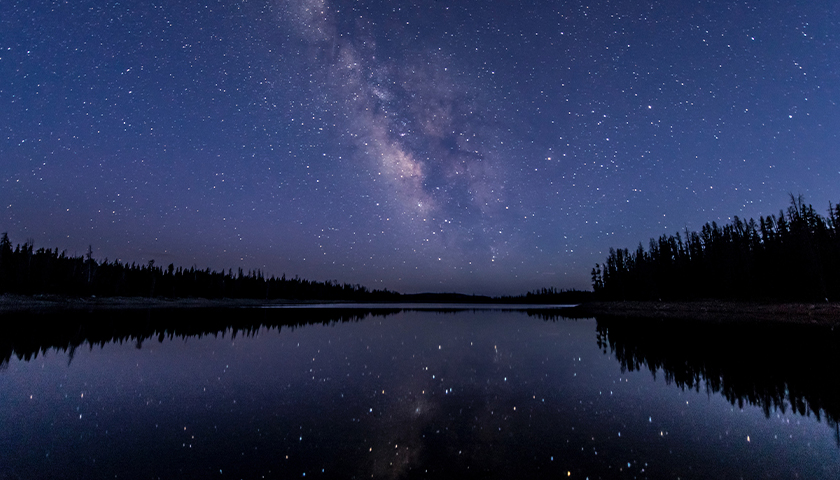by Ross Pomeroy
The night sky, in all its astral beauty, has ever been a source of wonder for the human race. But over a century ago, some astronomers looked up and saw a paradox.
Why, they wondered, if the Universe is infinite, with an infinite number of stars, is the night sky not white? Every direction we look, there should be a star whose light has traveled all the way to Earth. So the night sky should be a sea of sunlight!
This conundrum is commonly called Olbers’ paradox, named after the German astronomer Heinrich Wilhelm Olbers, who wrote about it in the early 1800s, though he was not the first, nor the only, thinker to ponder it.
One of those who did was none other than the prominent poet and sometimes astronomer Edgar Allen Poe. And it was in one of his poems, penned in 1848, that he mostly resolved the paradox.
“The only mode, therefore, in which, under such a state of affairs, we could comprehend the voids which our telescopes find in innumerable directions, would be by supposing the distance of the invisible background so immense that no ray from it has yet been able to reach us at all.”
Theoretical physicist Michio Kaku translated Poe’s prose in his recent book, The God Equation.
“In other words, the night sky is black because the universe has a finite age. We do not receive light from the infinite past, which would make the night sky white, because the universe never had an infinite past. This means that telescopes peering at the farthest stars will eventually reach the blackness of the Big Bang itself.”
The rise of the Big Bang model of cosmology many decades later further cemented Poe’s explanation. If the Universe had a ‘beginning’ of sorts, then we can only see back to that point. As the age of the Universe has been pegged at around 13.8 billion years, we can only observe across 13.8 billion light-years in any direction.
Edwin Hubble’s discovery that the Universe is expanding also helps explain why the sky isn’t blotted out with starlight. Stars moving away from us at high speeds will be red-shifted, thus dimming their light to our eyes.
Why is the night sky black and not white? Oftentimes, asking the simplest, most basic questions, tackling quandaries that others might just accept or eschew, yields remarkable insights.
– – –
Ross Pomeroy contributes to RealClearScience.








